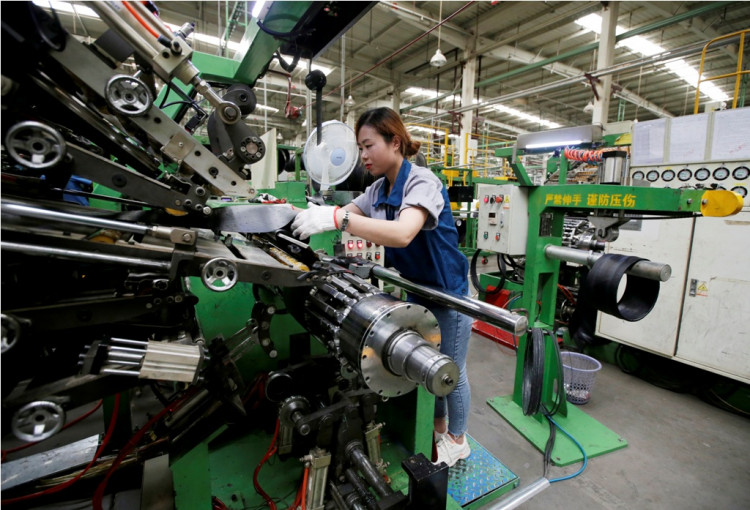The Japanese labor ministry revealed on Tuesday that data from May indicate a 1.0 percent slip in real wages. However, some aren't focused on potential consumer spending issues that impacted the drop. Others have revived debates about methods used to collect the data and if the figures were compiled accurately this time.
Earlier this year, the Japanese labor ministry admitted that faulty data collection methods were used in collecting wage figures, triggering doubts about the accuracy of wage information from the ministry.
Japan's data collection on wages involves around 33,000 companies, further fueling talks about the actual growth or decline of wages in the country, especially with revised information being released by the ministry following the revelation of errors in polling.
According to the ministry, real wages saw a decline of 1.4 percent year-on-year in April while regular pay dropped to an annual 0.6 percent in May. This is the fifth straight month of decline in regular pay figures.
Due to the errors in polling that could have spanned from 2004 to 2017, some economists are unsure if the trend wages are still accurate. Data-compiling groups are also having a hard time following through with the salary trends in Japan.
Aside from concerns about the potential inaccuracy of salary data in the country, economic experts are also getting more anxious about how lower-wage data can go amid an upcoming sales tax increase in October.
Some labor analysts are worried that the working group may not be able to cope with the tax increases since they do not see any progress with their salaries. It doesn't help that there is still a significant amount of unemployed consumers in the country.
Japan already has an unemployment rate of three percent so it's alarming that wage growth did not accelerate as expected. But, the biggest concern yet is how lower wages in the Japanese workforce will now affect consumer spending.
On the other hand, many economists are watchful of potential revisions or recalculations from the Japanese labor ministry - as was written in the books when revelations about faulty polling methods were revealed in January.
Workforce analysts and policymakers have been pushing for an increase in minimum wages. However, the government has not yet revealed a specific date or timeline on how this target will be achieved.
Amid multiple concerns over the slow progress in Japanese wages, Bank of Japan Governor Haruhiko Kuroda's statements may come to light. Kuroda said salary increases are necessary for Japan to see sustainable inflation. It remains to be seen how the government will react to his recommendations.





